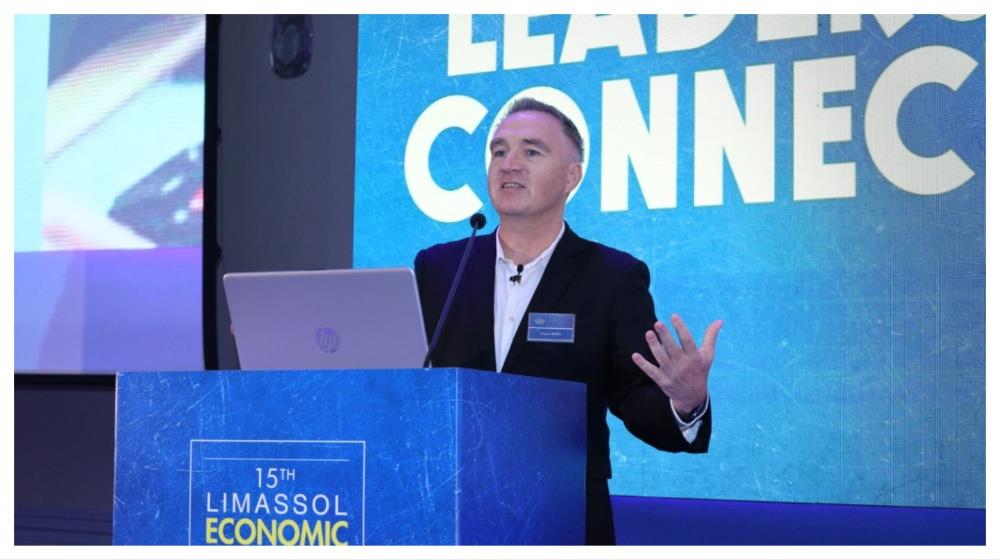Risk Taking and Decision Making Expert Caspar Berry was one of the highlights of the 15th Limassol Economic Forum, where he spoke about the importance of businesses knowing “when to fold”.
Drawing on his unique experiences from the high-stakes world of professional poker and Hollywood screenwriting, Berry delved into the complexities of risk and decision-making in today’s volatile business environment.
“Business and poker, what are the similarities? It’s about risk,” he began.
Berry became a professional poker player at age 26 and claims that if you are doing it properly, you are not gambling. Gamblers, he claimed, lose as the games are set up mathematically to ensure that the company wins. “In poker, you are not playing the company but players across the table. In the long run you can make a profit.”
He used a poker game as an example. In general, the chances of someone bluffing are roughly 10%. “Although we could win, the math tells us that we should fold. It doesn’t make for great drama, but folding is usually what defines a good player from a bad one. We get rid of our cards when we are likely to be beaten.”
The same, he said, applies to business. “It’s difficult when you’ve already invested your time, your money into this hand, but you need to learn when to fold. The difference between successful people and really successful people is that the latter say no to almost everything. They fold. Steve Jobs did it. For something new to start, something old must fold. Folding is good.”
On the other end of the stick, for someone who is know to bluff the majority of time, the math shows that the long term effect from taking the risk is positive.
In the market, said Berry, others can see your product, they can replicate it and affect your profitability, forcing the majority into a comfort zone where they end up turning down possibilities. “We must innovate, take risks,” he added.
Concluding, he said there were four characteristics that define successful leaders: they must be optimistic, consistent and true to their beliefs, successful and have the ability to trust. If one wants to run a large business, they must trust people to do it. “You will be lied to, let down and screwed over more often than not. But you will get more from those that don’t do that than if you don’t trust anyone at all. We are often sabotaging ourselves.”









